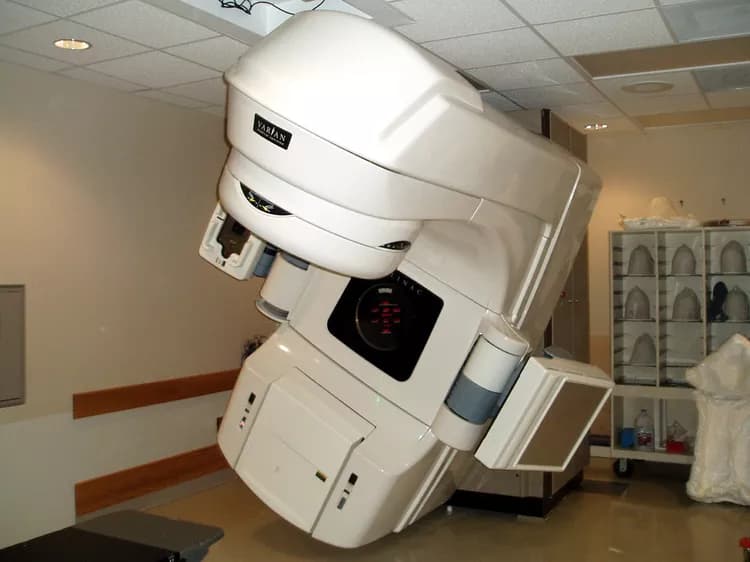
Remote Therapy Program Improves Quality of Life, Lowers Distress After Cancer Diagnosis
CHICAGO – Most patients experience significant distress after they are diagnosed with cancer. This distress not only erodes quality of life, but can also negatively affect the course of the disease and the patient’s ability to tolerate treatment.
Yet, few patients with cancer receive psychological support. A prospective study shows that a web-based stress management program can relieve distress and markedly improve quality of life for patients.
The study will be featured in a press briefing today and presented at the 2017 American Society of Clinical Oncology (ASCO) Annual Meeting.
“Delivery of psychological support to patients at this early time in the course of their cancer care is hampered with lack of accessibility, time, and resources on both the patient’s and the provider’s side,” said lead study author Viviane Hess, MD, a medical oncologist at the University Hospital of Basel in Basel, Switzerland. “With this online intervention, we aim to close this gap.”
About the Intervention
The STREAM intervention is an eight-week, web-based stress management program developed by oncologists and psychologists. The intervention is based upon well-established cognitive behavior approaches used in face-to-face psychotherapy. It covers eight different topics, such as bodily reaction to stress, cognitive stress reduction, feelings, and social interactions. For each weekly topic, participants received written and audio information and then completed exercises and questionnaires.Psychologists reviewed patients’ progress weekly and provided personalized, written guidance and support through a secure online portal. The psychologists were all based in Basel, but patients were located in Germany, Switzerland, and Austria. The patients also had the opportunity to write to the psychologists directly through the online program.
This remote therapy model known as “therapist-guided online intervention” is fairly new, although it is already becoming a standard approach for certain psychological disorders such as anxiety, and it appears to be as effective as traditional face-to-face therapy, according to the authors. It is less time consuming for the therapist and more convenient for patients, particularly at the time they are handling many other medical appointments following a diagnosis of cancer.
“New technologies open new opportunities. With this intervention we can deliver much needed psychological support in the comfort of the patients’ living rooms or other favorite Wi-Fi spots. It seems that patients and psychologists can still form a therapeutic bond through this online contact,” said Dr. Hess.
About the Study
Within 12 weeks of starting cancer treatment, 129 patients were assigned to either the STREAM intervention group or the control group. The majority of participants were women with early-stage breast cancer, although the study also included patients with lung, ovarian, and gastrointestinal cancers, as well as those with lymphoma and melanoma.In both groups, the researchers used validated scales to measure quality of life (FACIT-F), distress (DT), and anxiety/depression (HADS) at study entry and two months after the intervention. They predefined a nine-point difference in the FACIT-F score as a clinically meaningful improvement in quality of life. The DT scale is routinely used to screen for distress in patients with cancer. A score of 0-4 is considered low distress, whereas 5-10 is considered high distress. The control group did not receive psychological support during the first two months of enrolling in the study.
Key Findings
At two months, patients in the intervention group had a greater improvement in quality of life than patients in the control group ̶ the mean FACIT-F score increased by a mean of 8.59 points more in the intervention group than in the control group. The distress score decreased from 6 to 4 points in the intervention group but stayed the same (6 points) in the control group. There were no significant differences in anxiety or depression between the two groups.The control group began STREAM after a two-month wait period. The researchers will report on the efficacy of such delayed intervention during the ASCO Annual Meeting.
Next Steps
To make this intervention accessible to more patients, the researchers have plans to translate it into other languages (it is currently available only in German) and develop online programs where psychologists can be trained to use it.“I think online psychological support will be much more important in the years to come, as the digital generation reaches the age when they are at higher risk of cancer. For them, it will be natural to use such online tools and communicate without face-to-face interaction, and so now is the time to standardize and validate the tools,” said Dr. Hess.
View the full abstract.
Materials provided by American Society of Clinical Oncology. Note: Content may be edited for style and length.
Disclaimer: DoveMed is not responsible for the accuracy of the adapted version of news releases posted to DoveMed by contributing universities and institutions.
Related Articles
Test Your Knowledge
Asked by users
Related Centers
Related Specialties
Related Physicians
Related Procedures
Related Resources
Join DoveHubs
and connect with fellow professionals

0 Comments
Please log in to post a comment.